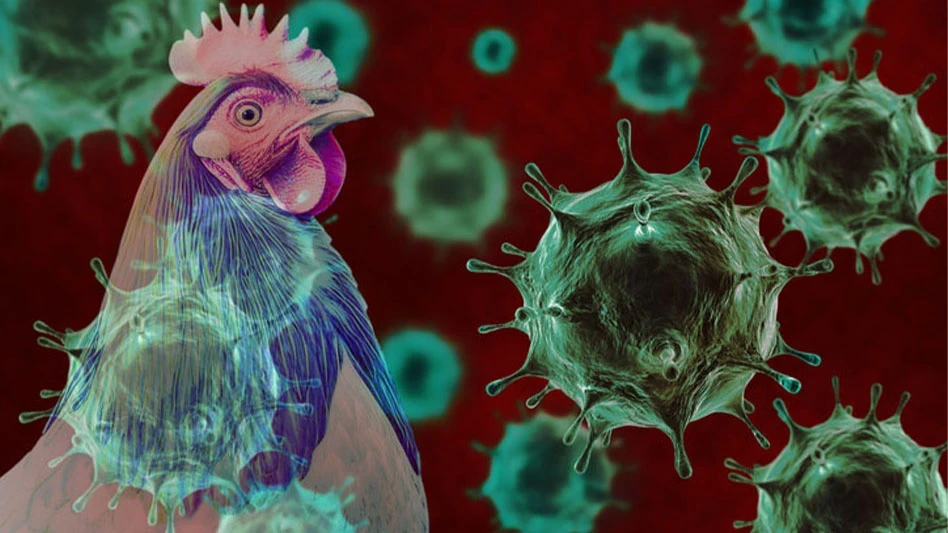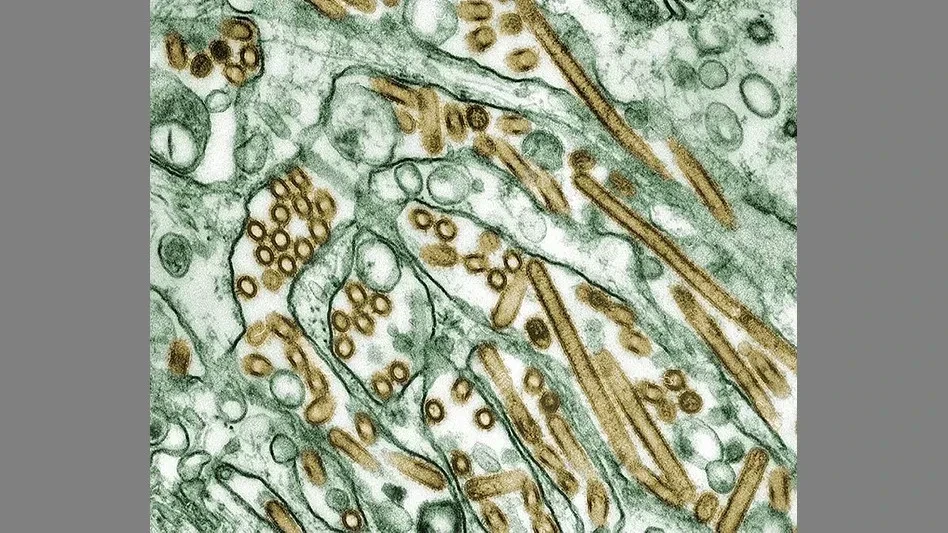
Photo courtesy World Health Organization
The Joint FAO/WHO Expert Committee on Food Additives (JECFA), an independent international scientific expert committee administered jointly by the Food and Agriculture Organization of the United Nations (FAO) and The World Health Organization (WHO), is seeking experts. The committee provides science advice on potential human health impact of food chemicals as basis for acceptable levels of chemicals in food to the Codex Alimentarius Commission and to member states in their regulatory control programs.
The committee has convened on a regular basis since 1956, initially to conduct the safety evaluation of food additives (including flavors and processing aids). Its work now includes the evaluation of contaminants, naturally occurring toxicants and residues of veterinary drugs in food.
The conclusions and recommendations of the committee are summarized in reports of the meetings that are published by WHO in the Technical Report Series (available online). Detailed monographs describing all evaluated biological, toxicological and human data, as well as exposure data, are published in the WHO Food Additives Series (available online). Experts invited by FAO develop specifications for food additives and evaluate residue data for veterinary drugs, which are published in the FAO JECFA Monographs series (available online), and evaluate analytical methods and assess occurrence data on contaminants in food. In addition, FAO and WHO have a joint roster of experts in dietary exposure assessment.
WHO said it uses procedures for the selection of experts that assure the excellence, independence and transparency of the recommendations of its scientific committees. This process was developed to ensure that the pool of available experts includes a diversity of expertise and viewpoints and includes scientists from all geographic regions of the world.
WHO seeks to renew the current expert roster by identifying qualified scientists willing to serve as WHO experts on JECFA and to assist the Secretariat in the preparation of working papers.
EXPERTISE AND RESOURCES REQUIRED. Experts will be responsible for reviewing epidemiological, toxicological, mechanistic and related data and for establishing, where possible, acceptable daily intakes (ADIs) or provide other safety advice for food additives, establish ADIs and acute reference doses for veterinary drugs and tolerable intakes or other risk assessment advice for contaminants and naturally occurring toxicants. They prepare their contribution in advance of the meetings to be integrated in the overall monograph and report to be produced by the meeting.
The scientific food safety risk assessment is a multidisciplinary exercise that involves specialists in biology, chemistry, toxicology, medicine and applied statistics. Experts should be recognized within their scientific community by peer-reviewed publications in national and international journals or otherwise have demonstrated expertise in one or more of the components of the risk assessment process (hazard identification, hazard characterization, exposure assessment, risk characterization) at national or regional level. The mutual respect and understanding between scientists from various disciplines is a key element of success in reaching a consensus based on the best available science. An understanding of the overall food safety risk analysis process would be of advantage.
Qualified experts will be selected from the roster for each meeting depending on the expertise required and are then requested to review the literature and prepare background papers in advance of the meeting. Meetings are conducted in English, and participation in the meeting is required for the whole duration, usually 10-12 days. Cost of participation is covered by WHO; honoraria are not provided.
Successful candidates should meet most or all of the following qualifications:
- Hold advanced university degree(s) in toxicology, pharmacology, biochemistry, food and chemical toxicology, pathology, epidemiology, new approach methodologies (NAMs) in toxicology, molecular biology, microbiology or statistics
- For candidates in microbiology, JECFA requires microbiologists with knowledge of effects on the human microbiome from dietary intake of veterinary drugs residues, food additives and contaminants of food
- Scientific excellence evidenced by publications in peer-reviewed specialized journals
- Professional experience in food chemicals or a related field
- Practical experience in reviewing, analyzing, evaluating and extrapolating experimental, animal and other biological data on toxic chemicals to humans
- Experience in delivering scientific assessments at the national or international level
- Ability to converse in and write documents in English
- Ability to prepare documents and spreadsheets in electronic format
- Familiarity with the risk analysis processes, in particular as it relates to JECFA and Codex
- Ability to work with people from different cultural backgrounds as well as with scientists from various disciplines
APPLICATION. Interested scientists are invited to submit their curriculum vitae.
- The applicant should include a description of education, work experience and a list of peer-reviewed publications in the application, including reference to two persons with knowledge of the professional qualifications.
- Scientists preparing background papers and draft evaluations should have hands-on experience in reviewing toxicological dossiers and in preparing evaluation reports.
- Scientists to be considered as members (reviewers) of the committee should have long-standing and broad experience in the evaluation of chemicals in food.
Experts should also indicate whether time would be made available by his or her employer for the review of dossiers and preparation of working papers before the meeting and if he or she would have ready access to other experts, such as pathologists, pharmacologists, epidemiologists or statisticians to offer advice on various scientific issues as they arise during the review and preparation of the working papers.
The applicant should indicate whether his or her training and experience are best suited for the evaluation of food additives (including flavors and processing aids), residues of veterinary drugs, contaminants or naturally occurring toxicants.
SELECTION PROCESS. WHO chooses scientists on the basis of their expertise in the areas under consideration. Procedures for the selection of experts are applied to assure the excellence, independence and transparency of the recommendations of its scientific committees, said WHO.
The curriculum vitae submitted will be reviewed by a selection panel, which will determine whether the applicant meets the essential requirements outlined in the call.
Complementarity of scientific backgrounds and representation from various geographic regions will be taken into account, as well as gender balance.
The experts selected will be appointed to a roster from which experts for individual meetings are selected. Additional experts can be recruited if required to address specific questions at certain meetings.
Appointments to the roster will be for a period of five years. The names and affiliations of those scientists placed on the roster will be public information.
Before participating in meetings, candidates will be required to declare any potential interests associated with the substances according to the standard WHO process. Experts attend the committee meeting as independent internationally recognized specialists who act in their personal capacities and not as representatives of their employers, governments or other institutions.
Applications should be submitted by Oct. 1 to:
Food additives, contaminants and natural naturally occurring toxicants
Kim Petersen
WHO Joint Secretary to JECFA
Department of Nutrition and Food Safety
World Health Organization
Avenue Appia 20
1211 Geneva 27
Switzerland
E-mail: jecfa@who.int
Residues of veterinary drugs
Soren Madsen
WHO Joint Secretary to JECFA
Department of Nutrition and Food Safety
World Health Organization
Avenue Appia 20
1211 Geneva 27
Switzerland
E-mail: jecfa@who.int
Latest from Quality Assurance & Food Safety
- Seeding The Future Global Food System Challenge Finalists Revealed
- TraceGains Launches AI-Powered Intelligent Document Processing to Improve Ingredient Safety, Compliance
- IFT Virtual Workshop on Food Fraud Prevention to Address Supply Chain Disruptions
- Penn State Course Covers Fundamentals of Food Science
- FDA Reschedules Webinar on Updated ‘Healthy’ Claim
- Thousands More Laid Off at FDA, CDC in HHS Restructuring
- USDA Extends Deadline on Request for Information for Poultry Quality Standards
- Dessert Holdings Issues Allergy Alert on Undeclared Pecans in Favorite Day Cheesecake





